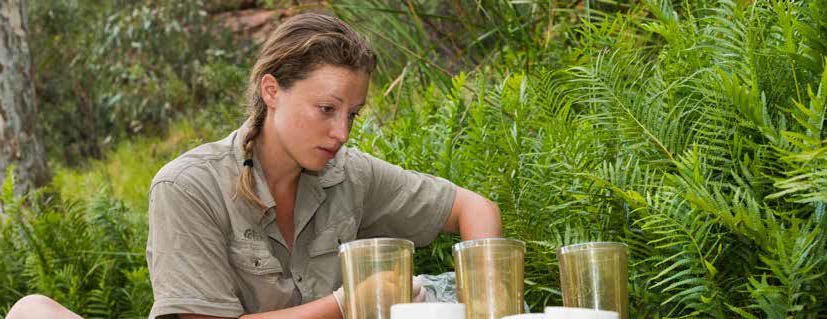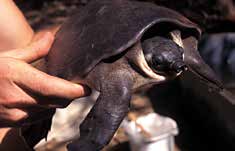Engagement and Impact

Centre members have been part of a series of major multi-disciplinary research partnerships, the Murray Darling Basin Futures CRN (2011-16; Georges, Gruber), Invasive Animal CRC (2005-2017; Sarre, Gleeson) and the Centre for Invasive Species Solutions (CISS; 2017- present) (Gleeson, Duncan). These programs have generated fundamental knowledge, monitoring and detection tools and decision support frameworks that have become central to biodiversity management.
A major focus of our research is to engage and collaborate directly with industry partners to ensure we have an impact on decision making that affects biodiversity management. Click below for examples of our industry engagement.
Centre Staff also actively engage in species conservation through consultancies, roles on advisory panels (e.g. Arthur Georges - Chair of the ACT Scientific Committee; Richard Duncan - Advisory Panel member for New Zealand's Biological Heritage Science Challenge; Dianne Gleeson - Member; IUCN Conservation Genetics Specialist Group).

Photo credit: Charles Davis
Outputs arising from our eDNA research, include co-authored publications with industry partners, changed management of detection systems, and introduced new approaches to species monitoring. Furthermore, the eDNA team has established a profile as the leading R&D provider for eDNA in Australia through the brand EcoDNA (ecodna.org.au) and received substantial investment from the Department of Agriculture (committed until 2021) with the goal of becoming the National Reference laboratory for Australia in this technology at UC.

The Centre will continue the productive relationship with the petroleum industry in Papua New Guinea that has now been running since 2006, under UC leadership. This is a well-funded high-profile project that aims to improve biodiversity conservation outcomes through environmental education and community led conservation in the gulf region of Papua New Guinea. We collaborate with the Piku Biodiversity Network (PBN, incorporated in PNG, Georges on the Board) to engage with the National Education Department and relevant NGOs and stakeholders for the incorporation of Childrens' books, each with a conservation/sustainability theme, and associated learning materials into the national curricula; to organize and deliver school activities in classrooms once books are received by students enhancing the outreach of the book's environmental message; to engage young PNG nationals for experiential learning with the Project from local villages, schools and science institutions; to provide mentoring support to Wau Creek Protected Area through engagement with the landowning Rupahai Clan to continue the process of establishing Wau Creek as a protected area under national policy; to participate in the Kutubu Kundu and Digaso Festival in September 2018, World Wildlife Day in March 2019 and World Environment Day June 2019 at the Port Moresby Nature Park; and to pilot the Piku Travelling Booth in villages in Kikori, Gulf Province. Targeted outreach and community engagement to achieve outcomes for biodiversity outcomes and sustainability in PNG.
The Centre is building a sustainable relationship with the NSW Office of the Environment and Heritage to provide support for their work under the Save our Species initiative. That support brings the capacity of our inhouse partner, Diversity Arrays Technology, our computational strengths and population genetics to bear on the challenges faced by several critically endangered and endangered reptiles and mammals of NSW. We have been funded for this work through the ARC Linkage Program and direct funding from NSW OEH (now DPIE). Our software package, dartR led by Bernd Gruber, has been an essential component of our ability to deliver knowledge to our end-users in the timely and comprehensible manner that is demanded by them. We expect collaborations of this nature to expand to other agencies nationally and internationally. In addition, the highly sought-after dartR package has led to invitations for the team to hold workshops over the past two years (e.g for The Australian Museum, Museums Victoria, CSIRO and the Centre for Biodiversity Analysis).

